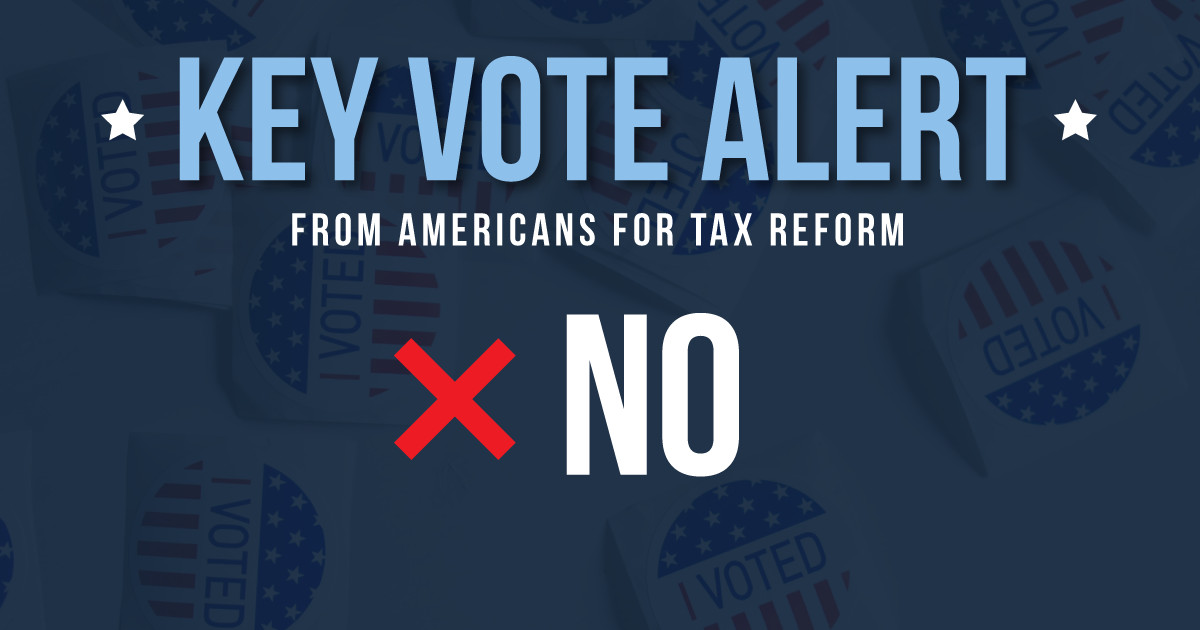
Americans for Tax Reform is key voting against the Credit Card Competition Act (CCCA) as Senate Amendment (SA) 1161 to H.R. 4366 (Military Construction, Veterans Affairs, and Related Agencies Appropriations Act, 2024).
The CCCA gives the Federal Reserve (Fed) the power to pick winners and losers, which is anathema to free-market policy. Inflation is a result of the Fed’s former easy monetary policy and the Biden administration’s excessive government spending. Why should we give the Fed more regulatory authority—which is all the CCCA does—when it failed to supervise Silicon Valley Bank and propagated the worst inflation America has faced in almost forty years? The Fed has been a primary contributor to the U.S.’s economic turbulence. The Fed should not be rewarded with more authority to regulate the credit card market.
A coalition of over 30 conservative groups and individuals sent a letter to Congress publicly opposing the CCCA.
A summary of the reasons for opposition can be read below:
- The bill does not promote competition; instead, it dramatically expands the role of the federal government to overregulate the market for credit cards. Today, requiring multiple dual-message networks to function over one card is technologically infeasible. The cost of overhauling our current credit system to comply with the mandates in the bill could reach $5 billion. This “competition” bill also excludes three-party model networks, such as American Express and Discover. Conveniently, Discover is based in Sen. Dick Durbin’s (D-Ill.) home state of Illinois.
- The mandates in the bill are so costly that more than $75 billion in rewards that consumers receive every year would largely disappear. According to the International Center for Law & Economics, “86% of credit cardholders have active rewards cards, including 77% of cardholders with a household income of less than $50,000.” The disappearance of rewards would likely harm minority communities and small businesses.
- The bill authorizes the federal government to intervene in contracts between private parties. The federal government should not be interfering in private contractual agreements. This encroachment will force small community banks and credit unions to severely limit or cease providing co-branded cards that millions of consumers use every day. This is similar to how Biden’s Securities and Exchange Commission is attempting to dictate provisions of contracts between private fund advisers and investors.
- There is no evidence that this bill will pass savings down to consumers. A report from the Government Accountability Office stated that if the regulations in the Durbin Amendment “had not been implemented, 65 percent of noninterest checking accounts offered by covered banks would have been free.” Since the enactment of the Durbin Amendment, about 22% of retailers have raised prices on consumers while only 1% lowered prices. Additional regulation on credit interchange will affect fees and interest in the credit market, thus increasing costs for consumers.
- Because the bill forces credit cards to allow access to all networks, proprietary technology will be exposed to competing networks, destroying incentives to create new and innovative fraud protection and cybersecurity. As one paper points out, the routing mandates “largely undermine the economics of networks and issuers.”
- The bill does not resolve the issue of applying merchant category codes to firearm sales. There is state legislation that has already been enacted, such as in Florida, to prohibit financial firms and the government from surveilling purchases of firearms. However, the Credit Card Competition Act will do nothing to solve this issue. Congress should instead mimic the currently existing state legislation or examine why the International Organization for Standardization (ISO) is able to circumvent our elected representatives and impose requirements on American companies that put them at a competitive disadvantage to foreign firms. ISO, like the Basel Committee on Banking Supervision, possesses no supranational authority or legal force in the United States.
- The bill does not ban China UnionPay or other state-owned payment card networks from operating in the U.S. Rather, the bill tells the Federal Reserve to “establish a public list” of payment card networks that “pose a risk to the national security of the United States” or is “owned, operated, or sponsored by a foreign state entity.” Drafting a list of payment networks owned and operated by totalitarian regimes is a far cry from a bill that explicitly bans these payment card networks.
- The bill is a perfect example of Congress ceding its Article I authority to the Federal Reserve. All the provisions of this bill require the Federal Reserve to draft rules to carry out its mandates. The Federal Reserve does not receive Congressional appropriations; instead, it is self-funded by earning interest through its open market operations. This makes the Federal Reserve, and any rules it issues, far less accountable to Congress. SA 1161 might pass once, but — as we have seen with debit card regulation — the Federal Reserve would regulate multiple times over, potentially decades into the future. New regulatory authority, once given, is extremely hard to take back.
ATR is urging senators to vote against SA 1161.

